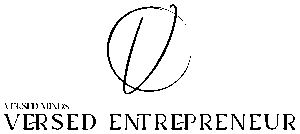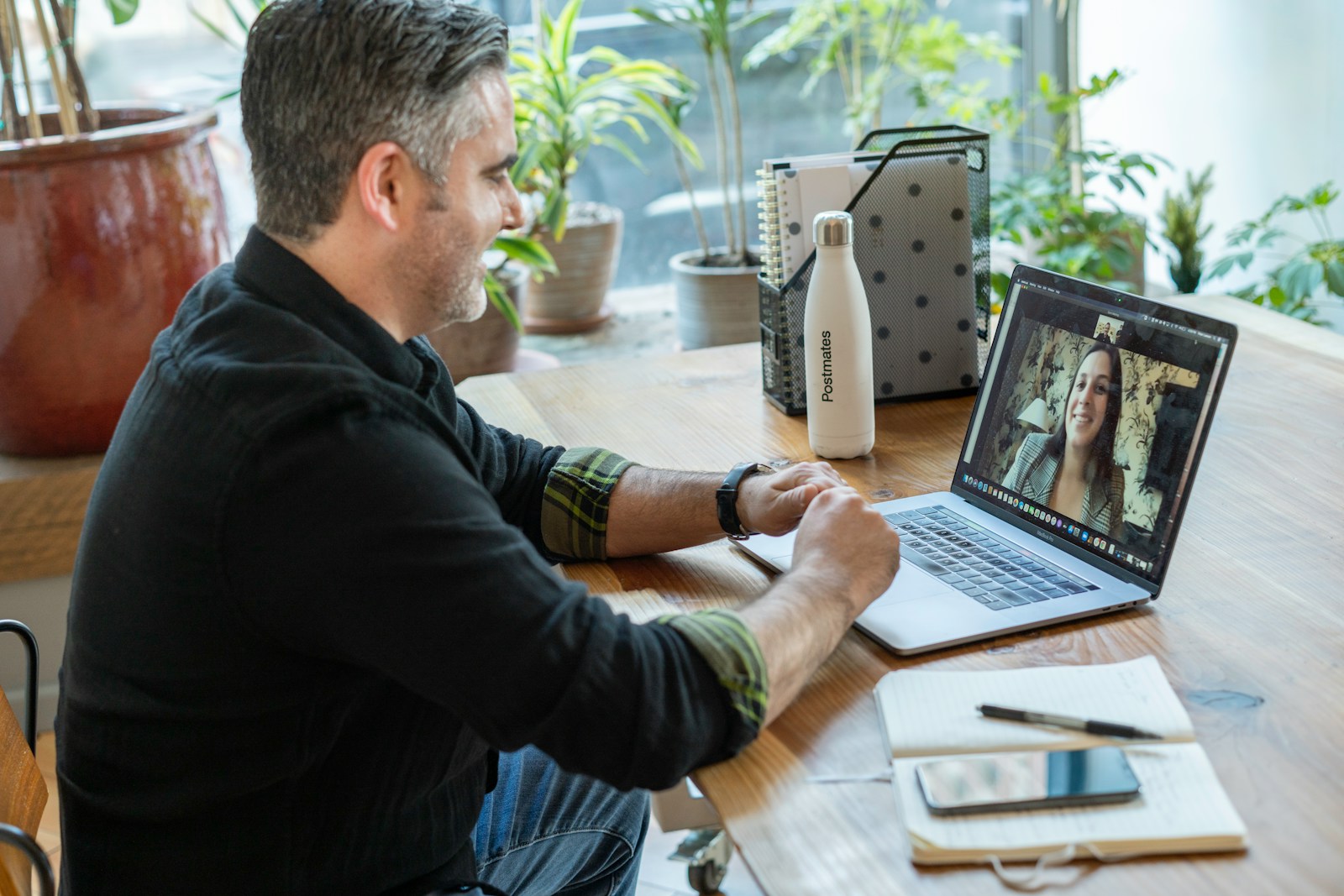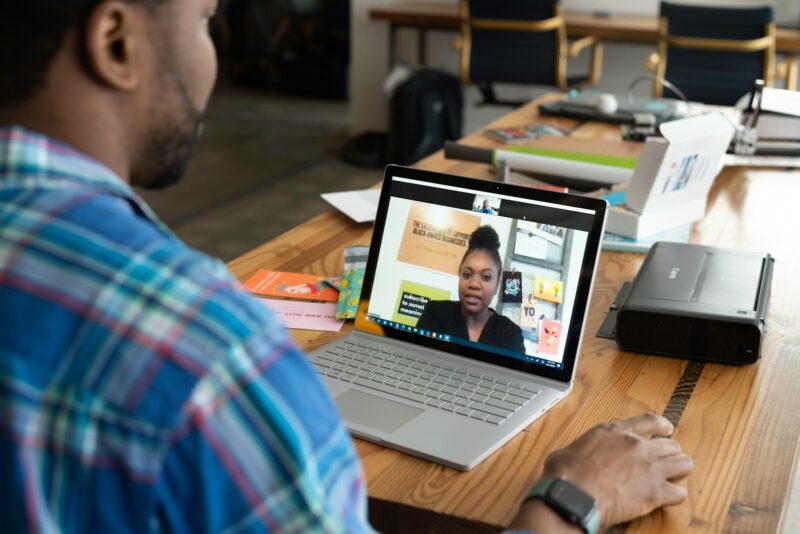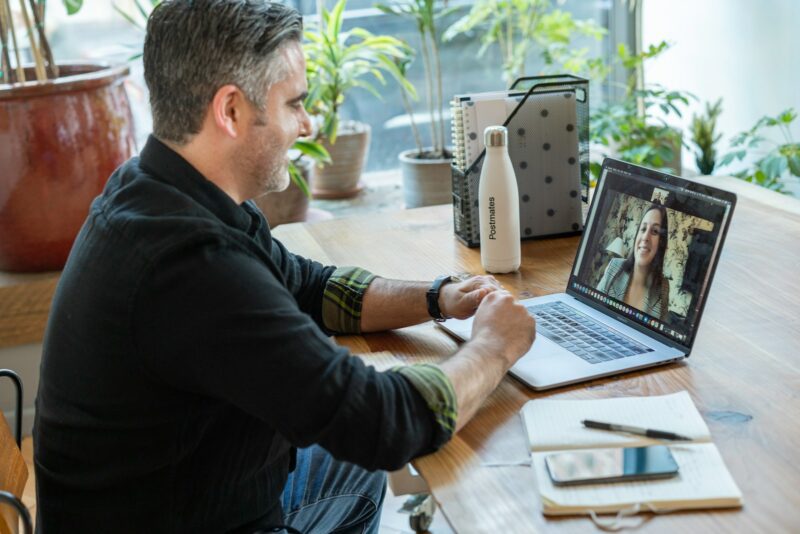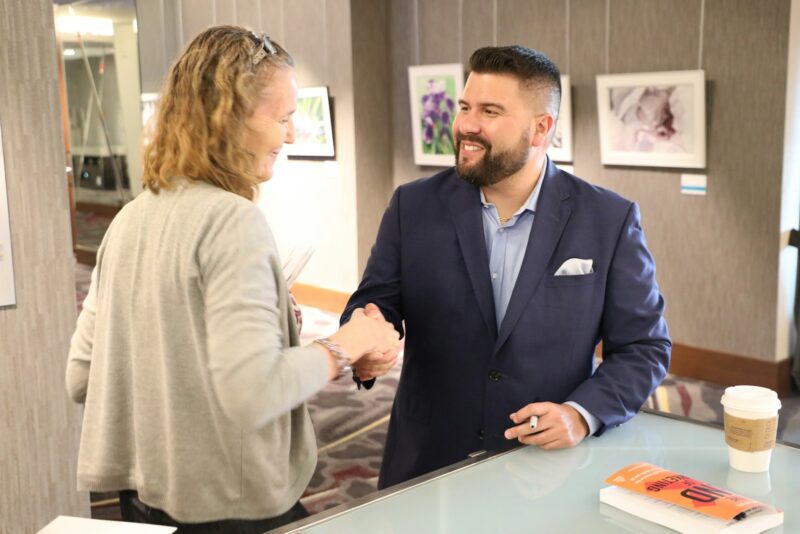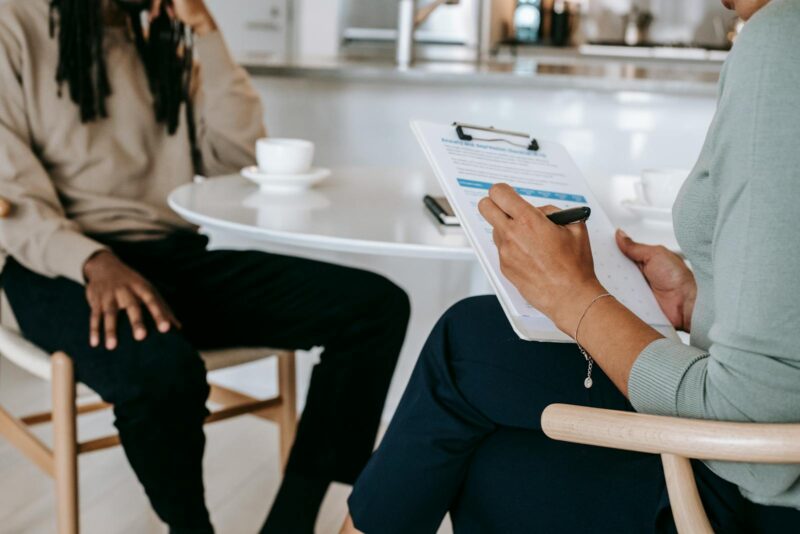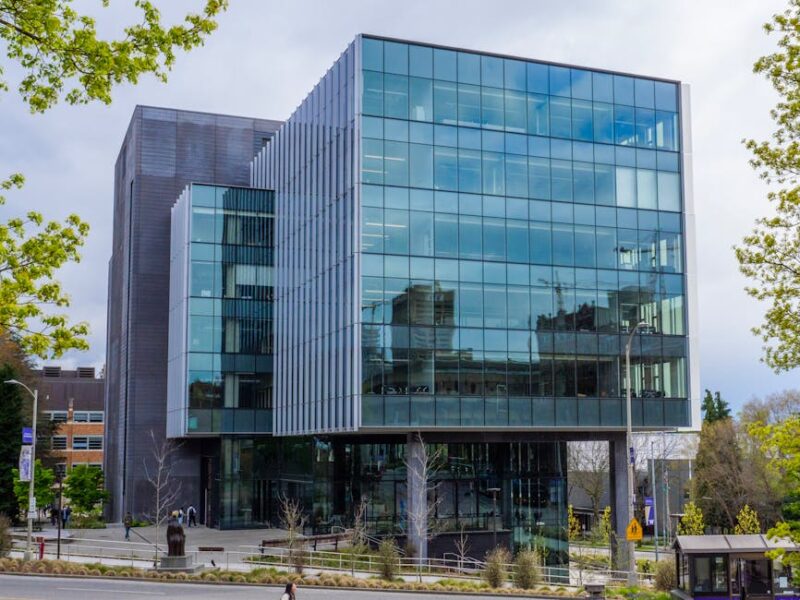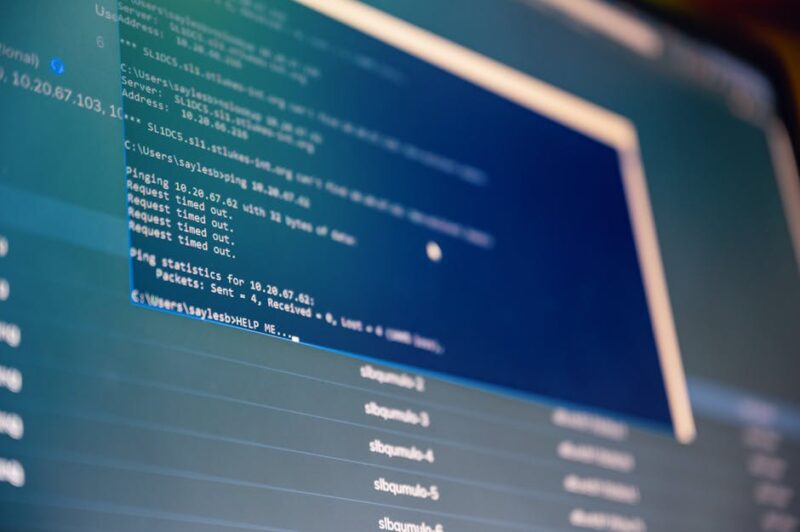Table of Contents
ToggleBest Job Interview Tips for 2024
Job interviews in 2024 continue to be the gateway to new career opportunities. With the job market evolving rapidly, staying updated with the latest interview trends and techniques is essential for success. Candidates need to prepare thoroughly, understanding not only the job role but also the underlying company values and work culture. This ensures that they can articulate their suitability for the position and demonstrate a genuine interest in the organization.
Creating a memorable first impression is still critical, as is the ability to communicate effectively throughout the interview. Knowledge of one’s strengths and weaknesses, and the competence to handle challenging questions strategically, can set a candidate apart. Moreover, it’s important to close the interview strongly and perform thoughtful follow-up actions. This proactive engagement can leave a lasting positive impression on potential employers.
Our Goal For You: More Interviews. Get Started with a Monster Resume Expert
Key Takeaways
- A deep understanding of the company and job role is crucial for interview preparation.
- Effective communication and presentation can significantly enhance a candidate’s first impression.
- Strategic follow-up actions post-interview can affirm a candidate’s interest and professionalism.
Best Job Interview Tips: Understanding the Interview Process
Navigating through the job interview process requires a solid understanding of several key elements, from thorough company research to a clear grasp of the job description, and preparation for typical interview questions. Applicants should treat each step with diligence, ensuring they are well-equipped to present themselves as knowledgeable and competent candidates.
Researching the Company
Candidates should begin by exploring the company’s website to understand its mission, business model, and recent news or achievements. Documenting specifics such as the company’s latest product launch or recognizing its position within the industry can demonstrate a genuine interest in the organization’s success.
Comprehending the Job Posting
Carefully analyzing the job posting is crucial. Candidates should note the listed skills and qualifications and align them with their own experiences. Employers value candidates who can reflect on their personal contributions to similar roles and how they’d be an asset to the team.
Anticipating Common Interview Questions
Preparation plays a significant role in successfully handling common interview questions. Applicants should reflect on their past experiences and prepare concise, strategic answers that display their skills and suitability for the job. Practicing responses to questions such as “What are your strengths and weaknesses?” or “Why are you interested in this position?” can significantly boost a candidate’s confidence during the interview.
Best Job Interview Tips: Preparing for the Interview
Proper preparation for a job interview can significantly enhance a candidate’s chances of success. Tailoring a resume, crafting a personal narrative, and engaging in mock interviews are crucial steps in showcasing one’s capabilities and aligning with the potential employer’s needs.
Tailoring Your Resume
A well-crafted resume that highlights relevant skills and experience is crucial. Candidates should:
- Analyze the job description to identify key skills and requirements.
- Customize their resume to reflect these, focusing on specific projects and achievements that demonstrate their suitability for the role.
Crafting Your Personal Narrative
The personal narrative is a candidate’s chance to convey their professional journey. They should prepare to:
- Confidently discuss strengths and address any weaknesses with a plan for improvement.
- Develop a succinct and compelling answer to the question “tell me about yourself” that aligns with their career goals.
Practicing with Mock Interviews
Mock interviews allow candidates to refine their responses and gain comfort with the interview format. During these practice sessions, they should:
- Prepare responses to common questions to articulate their expectations for the new role.
- Use feedback to improve their delivery and body language to convey confidence during the actual interview.
Best Job Interview Tips: Making a Great First Impression
A candidate’s first impression is often formed within moments of meeting. Therefore, dressed in a manner that projects professionalism and arriving on time are crucial for starting on the right foot. These details can convey one’s confidence and respect for the interviewer’s time.
Dressing Appropriately
Dress for Success: Choose attire that reflects the culture of the company. For example, a suit may be appropriate for a corporate interview, while smart casual clothing may be better suited for a startup. Clothes should be clean, well-fitting, and free of any tears or stains to present a groomed appearance.
- Attention to Detail: Ensure that shoes are polished and accessories are tasteful—this reflects attention to detail and an understanding of the workplace environment.
Punctuality: Arriving Early
Strategic Timing: Aim to arrive 10-15 minutes before the scheduled time. This demonstrates punctuality and allows a moment to gather thoughts and prepare for the interview.
- Manage Delays: Check traffic and public transport schedules ahead of time to mitigate any potential delays.
- Body Language: Use the waiting time to focus on calm and confident body language, practicing a firm handshake, a warm smile, and maintaining appropriate eye contact upon meeting the interviewer.
Best Job Interview Tips: Exhibiting Effective Communication Skills
Clear, structured, and engaging communication is key to a successful interview. Candidates should focus on delivering concise answers and using specific examples to demonstrate their capabilities.
Utilizing the STAR Method
The STAR method is a structured approach to responding to behavioral interview questions. It stands for Situation, Task, Action, and Result. By employing this technique, interviewees can convey their experiences in a logical, comprehensive manner that highlights their problem-solving and critical-thinking skills.
- Situation: Briefly describe the context within which you performed a task or faced a challenge at work.
- Task: Explain the actual task or challenge that was involved.
- Action: Discuss the specific actions you took to address the task or challenge.
- Result: Share the outcomes or results of your actions, including lessons learned.
For example, when asked about a time they led a project under a tight deadline, an interviewee might reply:
- Situation: “At my last job, we faced a deadline to launch a new product within a month, which was a shorter period than usual.”
- Task: “I was responsible for coordinating the cross-departmental teams to streamline the launch process.”
- Action: “I implemented daily stand-ups for quick problem-solving and ensured all teams were aligned with their responsibilities.”
- Result: “The product launched successfully on time, which resulted in a 15% increase in customer base over the following quarter.”
By using the STAR method, candidates can clearly demonstrate their role and the impact of their actions, which portrays them as organized and goal-oriented.
Maintaining Professionalism in Responses
Conducting oneself with professionalism during an interview conveys respect for the interviewer and reflects a candidate’s work ethic and demeanor. Interviewees should remain:
- Confident: Speak assertively, maintaining steady eye contact, and use a firm tone to show self-assurance.
- Engaged: Demonstrate active listening by nodding, maintaining eye contact, and asking for clarification if needed.
- Enthusiastic: Show genuine interest in the position and company, and express this through the tone of voice and body language.
When responding to questions, one should remain professional by offering concise answers that avoid rambling. If a question is unclear, politely ask for clarification rather than risk providing an irrelevant response. During an interview, professionalism supports the content of the candidate’s answers, reinforcing the value of their communication skills with appropriate and impactful delivery.
Best Job Interview Tips: Demonstrating Your Suitability
When applying for a job, candidates must convey their proficiency clearly and concisely. They should focus on illustrating how their abilities and experiences align with the company’s needs and values.
Aligning with Company Values
A candidate’s success often hinges on their alignment with the company’s values. They should research the company’s mission statement and core values, then incorporate this understanding into their responses. It’s beneficial to relay specific instances where their actions mirrored company principles. For example, demonstrating a commitment to teamwork or innovation can resonate well if those are highlighted in the company’s own job description.
Presenting Relevant Work Experience
Candidates should tailor their portfolio and resume to showcase work experience that directly corresponds to the challenges and responsibilities of the new role. Sharing quantifiable achievements from a previous employer can substantially bolster their case. For instance, discussing how they improved a product’s market share would highlight their direct impact on company success.
Emphasizing Your Unique Strengths
In today’s competitive job market, it’s crucial to accentuate one’s unique strengths and qualifications. Applicants should identify what sets them apart, such as a particular skill set, certifications, or specialized knowledge, and present how these attributes make them an invaluable addition to the potential employer’s workplace. They must not only express interest but also definitively show they are uniquely prepared to tackle the job at hand.
Best Job Interview Tips: Navigating Tricky Interview Questions
When entering a job interview, candidates should be prepared to tackle tricky interview questions that delve into salary expectations, employment gaps, and past challenges. Mastery of these topics conveys confidence and ensures the interviewer that the candidate is well-rounded and honest.
Discussing Salary Expectations
Candidates often face interview questions regarding their salary expectations. To provide a well-informed range, conduct thorough research on industry standards. Before the interview, visit sites like salary data to understand what is competitive for the role in question. When discussing salary, use diplomatic language. For instance, a candidate might say, “Based on my research and experience, my salary expectation is within the range of…” to show they are knowledgeable yet flexible.
Addressing Gaps in Work History
Explaining gaps in work history can be challenging, but honesty and a positive spin on the experience gained during that time are crucial. Prepare a concise narrative that explains the gap’s context, whether it was for further education, personal development, or other valid reasons. Then, you can say, “I took that time to focus on developing my skills in… which I believe adds value to my profile.” Including any self-improvement activities undertaken during this period is also beneficial.
Handling Questions About Challenges
Interviewers often ask about challenges at work to learn how a candidate manages pressure and stress. So, choose a specific incident where you faced a significant challenge and describe the actions you took to overcome it. Phrasing like, “In my previous role, I encountered…, and I tackled it by…” helps demonstrate problem-solving skills and the ability to remain calm under pressure. These are often framed as behavioral interview questions, prompting the candidate to illustrate their competence through past behavior.
Best Job Interview Tips: Closing the Interview Strongly
The final moments of a job interview are pivotal. They afford candidates the opportunity to make a lasting impression and position themselves as the top choice for the role through asking insightful questions and reaffirming their interest.
Asking Specific Questions
Prepare specific questions to pose to the hiring manager, demonstrating not only your deep interest in the position but also your strategic thinking. Candidates might inquire about:
- Day-to-day Responsibilities: “Could you describe the typical day-to-day responsibilities this role entails?”
- Team Dynamics: “How does the team currently structure their collaboration?”
These questions should align with your talking points from the interview, linking your experiences and skills with the role’s demands.
Expressing Continued Interest
To close strong, expressing enthusiasm is key. A concise statement reinforces your passion for the job:
- “I’m very excited about the possibility of contributing to the company and growing with your team.”
It conveys a robust and sincere interest, reminding the interviewer of your eagerness to be part of the organization.
Best Job Interview Tips: Follow-Up After the Interview
In the post-interview phase, candidates should focus on two crucial actions: sending a personalized thank you note and engaging in thorough reflection on their interview experience. These steps not only demonstrate professionalism but also provide an opportunity to reinforce their suitability for the position.
Sending a Thank You Note
After every interview, it is advisable for the candidate to send a thank you note within 24-48 hours. This note should express gratitude for the opportunity and reaffirm the candidate’s interest in the role. Candidates might find examples for a follow-up email useful to tailor their message effectively. It’s an opportune moment to mention any connections with the interviewers or to bring up highlights from the conversation that demonstrated a strong alignment with the company’s values.
- Address the interviewer by their first name.
- State clear enthusiasm for the job.
- Recap a memorable part of the interview.
- Add any brief remarks on how one’s skills and experiences align with the position.
- Politely inquire about the next steps in the hiring process.
Reflecting on the Interview Experience
A reflective process after the interview allows the candidate to analyze their performance and note areas for improvement. They should evaluate the questions asked by the hiring managers and consider how effectively they communicated their competencies. Reflection helps to prepare them for future interviews and also to decide if the role and the company are truly a good fit for their professional aspirations.
- Consider the aspects of the interview that went well and those that could have been better.
- Think about the rapport built with the interviewer and the overall dynamics of the conversation.
- Review the job description again and assess personal satisfaction with the potential role and work environment.
Best Job Interview Tips: Frequently Asked Questions
This section provides insights into effective techniques for showcasing skills and strategies for acing job interviews, along with typical questions candidates may encounter in 2024.
What are some effective methods for demonstrating technical skills during an interview?
Candidates should use concrete examples to showcase technical skills. They might consider discussing specific projects, describing the technologies used, and illustrating the impact their work had on those projects.
What are the most common questions interviewees can expect in 2024 job interviews?
Interviewees in 2024 can anticipate questions about their strengths, weaknesses, conflict resolution strategies, work accomplishments, and how they adapt to change. Learning about the most anticipated interview questions can provide a competitive edge.
What questions should candidates consider asking the interviewer?
Candidates should consider asking questions about company culture, career progression opportunities, team dynamics, project challenges, and performance evaluation criteria.
What are critical interviewing skills that interviewers should develop?
Interviewers should develop listening skills, question crafting to elicit informative responses, unbiased evaluation techniques, and an ability to make interviewees feel at ease to ensure a productive interview experience.


